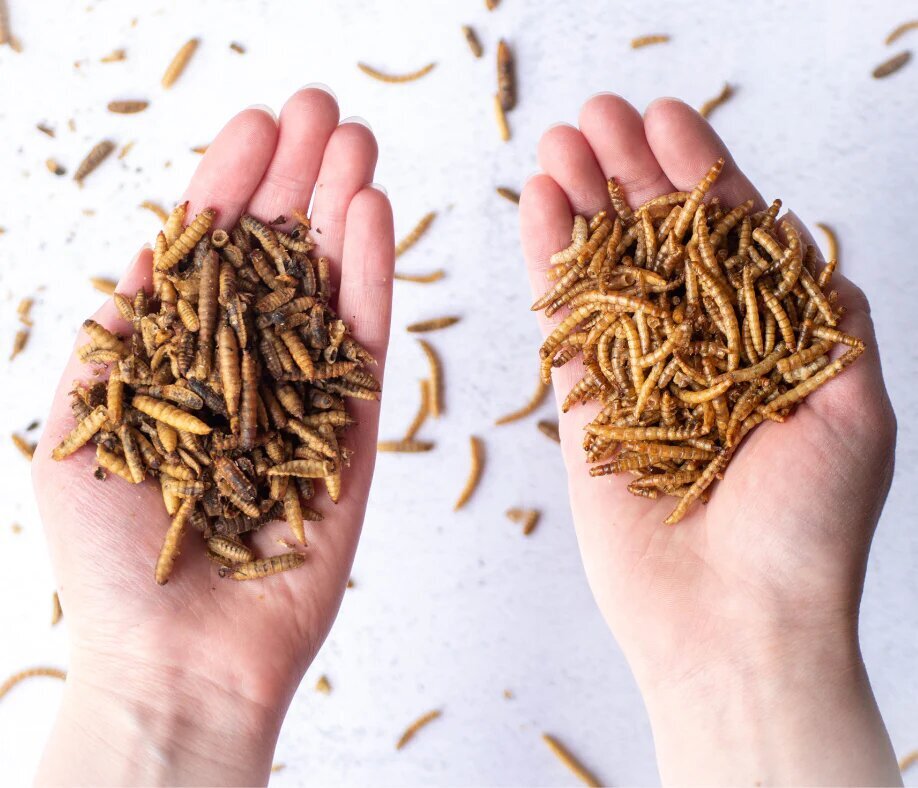The Gulf state was praised for issuing the statement on the matter with concerned residents and citizens urging regional countries to adopt similar policies.
Qatar has banned foods containing insects ruling they are not halal to eat following the European Commission’s approval of a fourth insect for human consumption last week.
“Reference to what is being circulated about some countries’ decision to approve the use of insects in food production, the Ministry of Public Health stresses that it bans food products containing insects in the markets for not meeting the requirements of halal food technical regulations,”Qatar’s Ministry of Public Health (MOPH) said in a statement on Thursday.
The halal certification means that food is permissible for consumption for Muslims per religious rulings.
The MOPH said regulations for the insects do not pass the GCC’s regulations and the religious opinion of authorities “which prohibit the consumption of insects, or protein and supplements extracted from them.”
“The Ministry of Public Health verifies compliance of food with the halal requirements through Islamic bodies accredited by the Ministry, and through its international-accredited laboratories to determine the source of protein contained in food products accurately,” added the statement.
The Qatari response is among the first to be issued from the Muslim region after the European Union authorised the labelling of a fourth insect, Alphitobius diaperionus, or lesser mealworm, as “Novel Food”.
Novel Food is one that “had not been consumed to a significant degree by humans in the EU before 15 May 1997”.
“The Novel Food Regulation is only about the approval of a product, following a stringent scientific assessment made by the European Food Safety Authority (EFSA). The Authority verifies, in light of the scientific evidence available, that the food does not pose a safety risk to human health,” explained the EU.
Qatar’s swift response to the move has been widely welcomed among social media users with calls for other GCC countries to adopt the same policy.
“We ask our esteemed government to reassure us against the entry of foods that include insect ingredients and to prohibit their entry into Kuwait, as Qatar did,” one Twitter user said.
Belonging to the family of darkling beetles, the insect can be served frozen, in paste, dried or in powder forms.
“It is intended to be marketed as a food ingredient in a number of food products for the general population,” the European Commission said last month.
The EU’s approval came shortly after the bloc green-lighted for the first time the consumption of “partially defatted powder obtained from whole Acheta domesticus”, or house crickets, “under certain conditions of use.”
The European Commission said there are eight applications for insects intended to be marketed as Novel Foods, noting “environmental benefits of rearing insects for food”.
Social media users have criticised the EU’s decision, questioning the process behind considering the approval of insects as Novel Food, with some taking aim at the sustainability line adopted to push its consumption.
“‘Eating insects will save the planet’ is just another meaningless slogan. The fact that millions of people around the world eat insects does not justify the elite in trying to convince the entire human population to do so,” one Twitter user said.
Others have also called for raising awareness and thoroughly checking the food ingredients before purchasing them from the market.
“If you see “sustainable” listed as an ingredient on your food label, that means there are crickets or insects. The FDA allows up to 450 insect parts in food. Check your flour label. I have an allergy to shellfish, and eating insects has the same effect as shellfish,” a social media user said.







